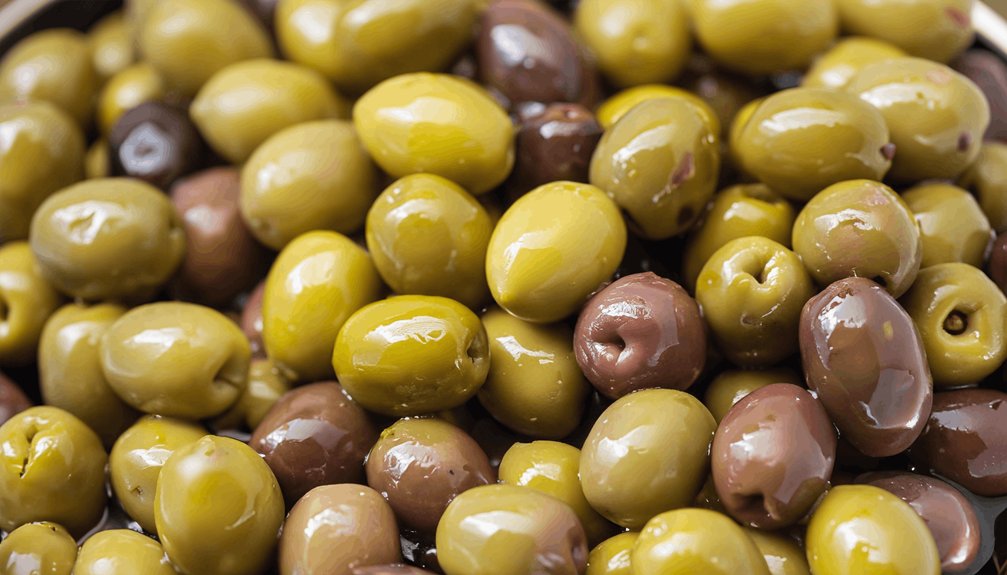
When it comes to nurturing your gut, olive oil might just be the unsung hero you didn’t know you needed. Rich in monounsaturated fats and antioxidants, it’s thought to support digestion in various ways. But how exactly does it influence your gut health? Understanding the science behind olive oil’s benefits can help you make informed choices for your diet. Let’s explore what the research reveals about this liquid gold and its impact on your digestive system.
The Nutritional Profile of Olive Oil
Olive oil is a powerhouse of nutrients, making it a staple in many healthy diets. Packed with monounsaturated fats, it supports heart health and can help you maintain healthy cholesterol levels. Rich in antioxidants like vitamin E and polyphenols, olive oil combats oxidative stress, giving your body the liberation it craves from harmful free radicals. Each tablespoon offers a burst of flavor and health benefits, encouraging you to explore vibrant dishes without guilt. Incorporate it into salads, drizzle it over vegetables, or use it as a cooking base. By embracing olive oil, you’re not just enhancing your meals; you’re also fueling your body with essential nutrients that empower your journey to wellness. Additionally, Gundry MD Olive Oil contains high polyphenol content, which is linked to various health benefits, including improved digestion. So, let olive oil be your culinary ally!
Anti-Inflammatory Properties and Digestive Health
When it comes to promoting digestive health, incorporating anti-inflammatory foods into your diet can make a significant difference. Olive oil is a fantastic choice due to its high content of healthy fats and antioxidants. These compounds work together to reduce inflammation in your gut, which can alleviate discomfort and promote better digestion. By drizzling olive oil over salads or using it as a cooking base, you’re not just enhancing flavor; you’re also nurturing your digestive system. Aim for extra virgin olive oil, as it retains more nutrients. Pair it with a balanced diet rich in fruits, vegetables, and whole grains, and you’ll empower your gut health. Embrace this liberating change for a happier, healthier you!
Olive Oil and Gut Microbiota
Incorporating olive oil into your diet can greatly impact your gut microbiota, the community of microorganisms living in your intestines. Research shows that the polyphenols in olive oil can promote the growth of beneficial bacteria while inhibiting harmful strains. By adding extra virgin olive oil to your meals, you’re not just enhancing flavor; you’re actively nurturing your gut health. Think of drizzling it over salads or using it as a base for sauces. You could even swap out butter for olive oil in your favorite recipes. This simple change can lead to a more diverse and balanced microbiome, empowering you to feel your best. Embrace this delicious ally on your journey to wellness!
Effects on Digestion and Nutrient Absorption
While many people focus on the benefits of olive oil for heart health, it also plays an essential role in digestion and nutrient absorption. By incorporating olive oil into your meals, you’re not only enhancing flavor but also promoting the secretion of digestive enzymes. These enzymes break down food more effectively, making it easier for your body to absorb essential nutrients. The healthy fats in olive oil help transport vitamins A, D, E, and K, ensuring you get the most out of your meals. Additionally, it can help reduce inflammation in the gut, supporting overall digestive health. So, when you’re preparing your next dish, drizzle some olive oil to liberate your digestive system and maximize nutrient absorption!
How to Incorporate Olive Oil Into Your Diet
Including olive oil in your daily meals can be both simple and delicious. Start by drizzling it over fresh salads for a burst of flavor and healthy fats. Use it as a base for sautéing vegetables, enhancing their taste while preserving nutrients. When cooking grains like quinoa or rice, add a splash of olive oil for richness. You can even swap butter for olive oil in baking recipes for a healthier twist. For a quick snack, dip whole-grain bread into olive oil mixed with herbs and spices. Finally, blend it into smoothies for an extra nutrient boost. With these easy tips, you’ll elevate your meals and enjoy the benefits of olive oil in no time!
Potential Risks and Considerations
Although olive oil is celebrated for its health benefits, it’s important to be aware of potential risks and considerations before making it a staple in your diet. First, remember that olive oil is calorie-dense; consuming too much can lead to weight gain. Additionally, not all olive oils are created equal—some may be adulterated with cheaper oils, compromising quality and health benefits. If you have a history of gastrointestinal issues, introducing olive oil too quickly might cause discomfort. Always opt for extra virgin olive oil to guarantee purity; read labels carefully. Finally, balance is key—pair olive oil with a variety of other healthy fats to support overall well-being. Stay informed and enjoy olive oil mindfully for ideal gut health.





